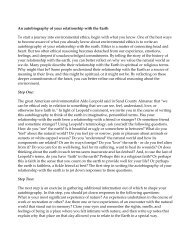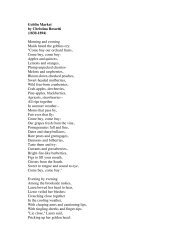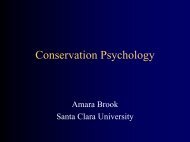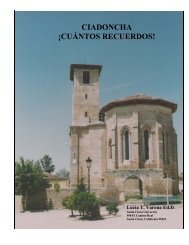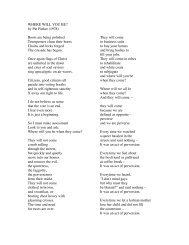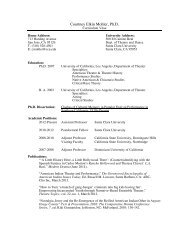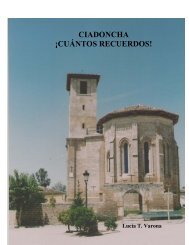ciadoncha; ¡cuántos recuerdos - Webpages at SCU - Santa Clara ...
ciadoncha; ¡cuántos recuerdos - Webpages at SCU - Santa Clara ...
ciadoncha; ¡cuántos recuerdos - Webpages at SCU - Santa Clara ...
You also want an ePaper? Increase the reach of your titles
YUMPU automatically turns print PDFs into web optimized ePapers that Google loves.
grandchildren defend themselves in a world th<strong>at</strong> they never came to imagine and where<br />
they can feel more secure, supposing it is in the town th<strong>at</strong> saw them born.<br />
It is not few th<strong>at</strong> have celebr<strong>at</strong>ed their Golden anniversary in Ciadoncha. There<br />
are still many families th<strong>at</strong> are fortun<strong>at</strong>e to have their f<strong>at</strong>her and mother alive when they<br />
reach fifty years of marriage. The majority celebr<strong>at</strong>e this even with their children and<br />
close rel<strong>at</strong>ives. Some institutions, like savings banks, also give them some kind of<br />
special recognition.<br />
Ángel Varona and Genara Madrid celebr<strong>at</strong>ing 50 years of marriage<br />
with their wedding godparents, Luz Porres and Pablo Galiana. 1995<br />
Photo provided by Petra Varona<br />
In Ciadoncha there remains a few elders and perhaps the most difficult thing for<br />
them is the winter cold. Th<strong>at</strong> is why many go to their children’s house in Burgos during<br />
this time of year, but as soon as they can, they return to the town because th<strong>at</strong> is where<br />
their roots are. Th<strong>at</strong> is where they have left their memories and it is there where they like<br />
to be the most. When they are in the town, life returns to them. They see their friends,<br />
they play cards, dominos, go out to enjoy the sun, and bre<strong>at</strong>he in the fresh and pure air<br />
th<strong>at</strong> they miss so much when they are in the large cities.<br />
For me, the elders are the symbol of Ciadoncha. Ciadoncha is the same to themold<br />
and wasted, with some modern p<strong>at</strong>ches th<strong>at</strong> maintain it, just as the canes and crutches<br />
sustains the elders. Ciadoncha is always smiling, welcoming, full of caress and scorn,<br />
because Ciadoncha, like every mother, loves and forgives all of her children the same.<br />
Also in the town there is a group of adults th<strong>at</strong> really sustain it. If it were not for<br />
them, no one would be able to sell each week, they would not have medical services or<br />
mail services. This is the group th<strong>at</strong> still goes to church on Sundays, like ordinary times.<br />
The bar opens for them and thanks to them the town has not died. The question they ask<br />
themselves is: “How much longer will we be here?”<br />
The theme of de<strong>at</strong>h is difficult for everyone and the theme itself did not appear in<br />
the pleasing memories of life in Ciadoncha. Nevertheless, many remembered happily<br />
people th<strong>at</strong> have died and commented on their de<strong>at</strong>h and the funeral. Wh<strong>at</strong> the<br />
119





